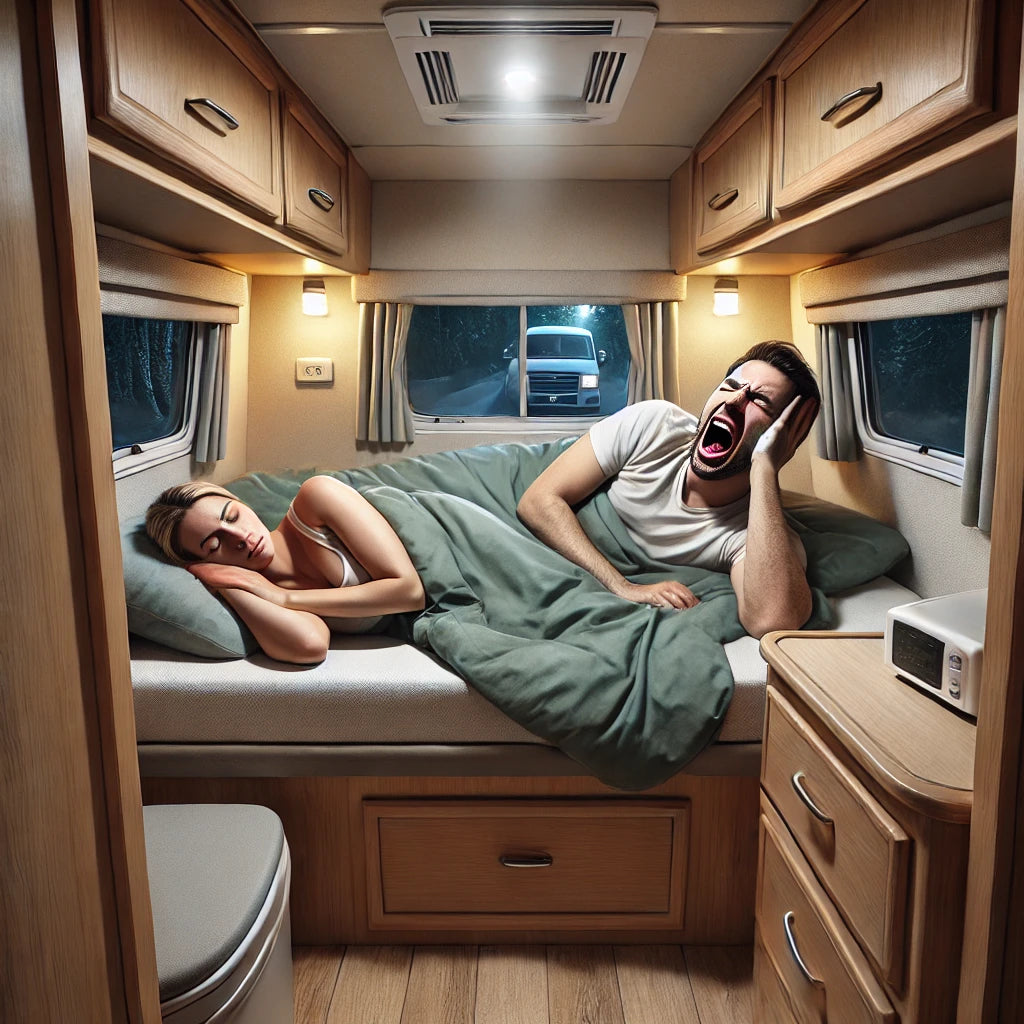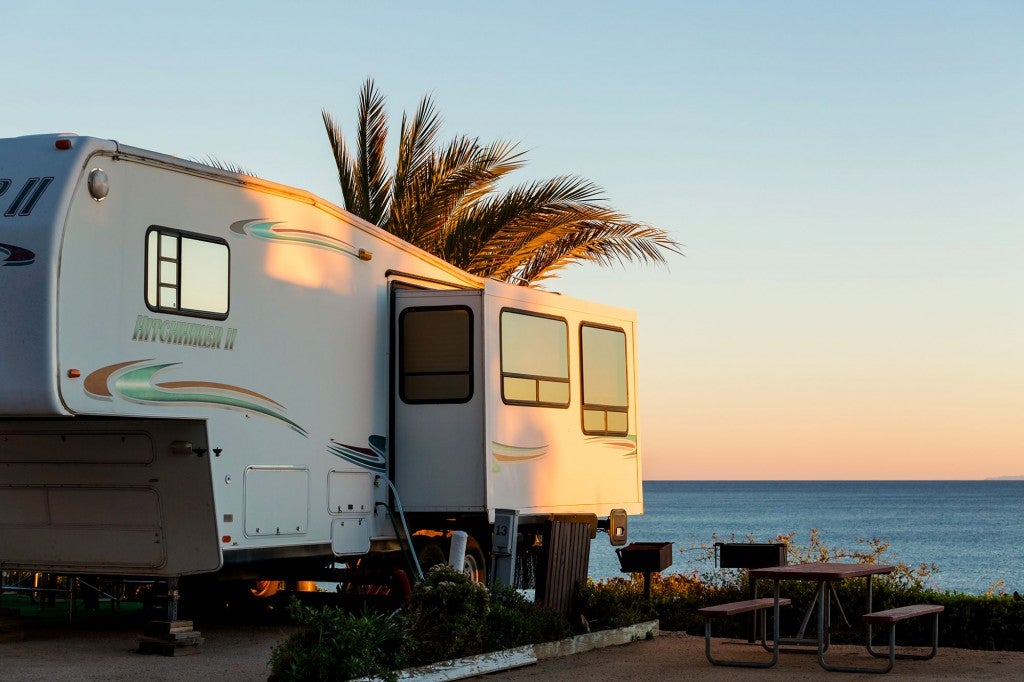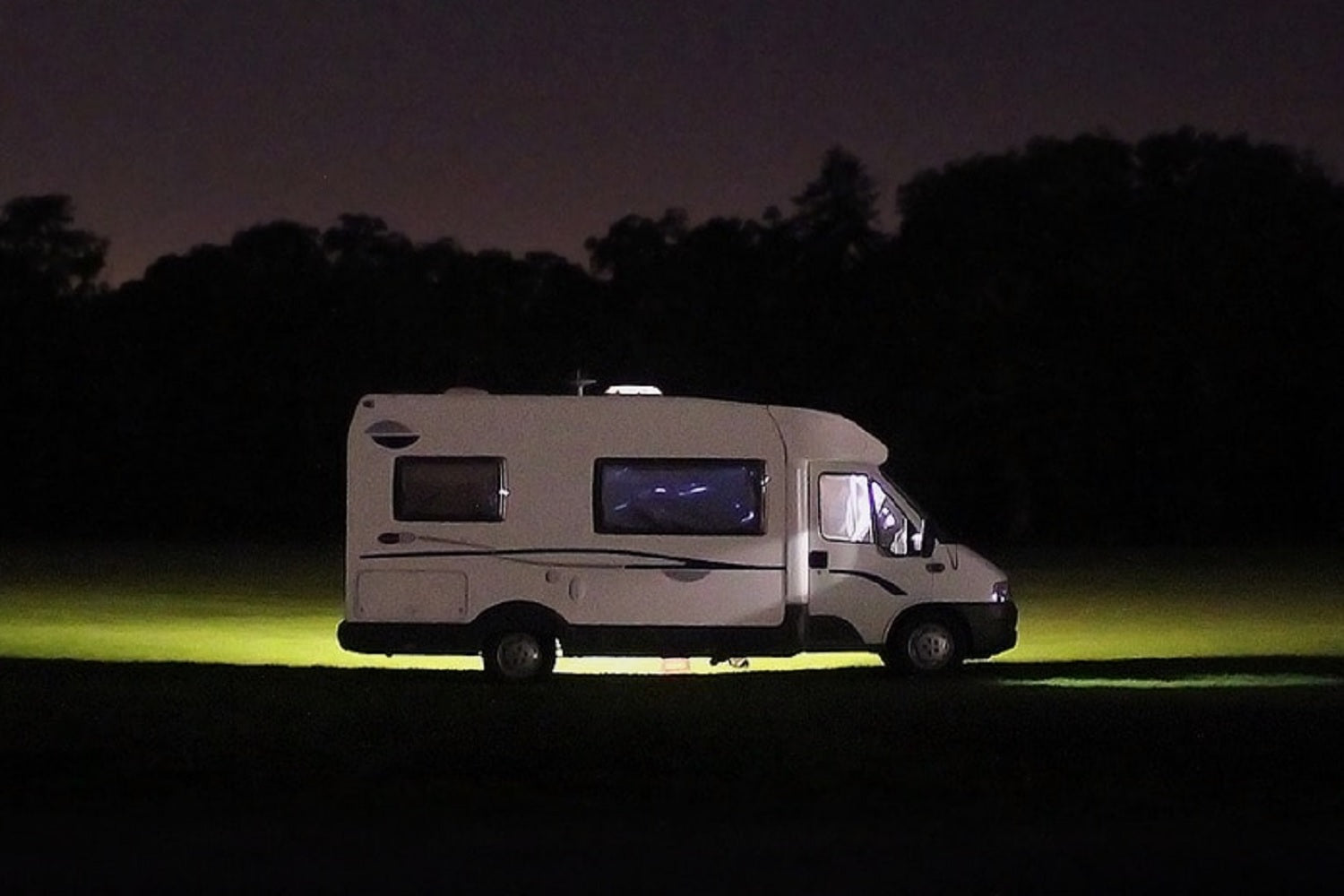
Getting Your Sleep in the Great Outdoors
It’s Summer and lots of folks are traveling into the wild for a much-needed break. Getting away from the hectic pace of daily life, and closer to nature—even for just a short while, can provide a vital reset for your body and spirit. Maybe that’s why 57 million Americans, choose camping for 40% of their annual travel. We’re taking a deep dive into camping with a series on camping and sleep. If you’re a camper, you already know how good camping is for you. We’ll talk about why that is—and how to make sure you’re getting your sleep in the great outdoors.
Camping has key health benefits.
Not least among camping’s varied health benefits, is improved sleep quality. For those feeling the need to get away from it all and rejuvenate, camping may be just the thing to get your sleep on track. Part one in our camping series will highlight the physical and mental health benefits of spending time in the great outdoors. We’ll also touch on noise pollution, and how to control it so you get the full benefit out of your camping experience. Here’s what we’ll cover in this post:
- Why more Americans are embracing camping
- How camping improves your health
- Considering the RV Lifestyle? Pros and Cons…
- The benefits of good sleep
- Controlling noise for a better quality of life
Why more Americans are embracing camping.
According to a KOA survey escaping the indoors and embracing various forms of camping has become more mainstream over the past 8 years. Their research shows households list camping as a widely adopted travel and leisure preference because 75% of campers say it reduces stress and promotes emotional well-being.
Camping verticals, Glamping and the RV Lifestyle are also expanding in popularity. Half of campers have tried—or are seeking—a glamping experience, while nearly 15 million households have gone RVing at least once. Three quarters of people who go RV camping now own their rig, rather than renting or borrowing one from a friend. Doesn’t sound like a passing fancy. Do they know something we don’t? Overlanding which is a more extreme form of off grid camping is also predicted to be on the rise.
Camping’s increased popularity is largely due to a growing desire for digital detoxing. Many of us are looking to disconnect from the ever-encroaching technology—and reconnect with nature. Whether you choose the beach, the desert, or a national forest, immersing yourself in nature is a great way to relax, recover, and recharge.
Other driving factors?
Affordability—Camping is inexpensive compared to other travel options. There are tons of resources to help you travel more affordably, and you'll find cooking your own meals gives you more control over both your budget and your diet.
Quality Time—Camping is a great way to build and strengthen bonds with others. Friends, loved ones, new acquaintances. You may even get to know yourself better.
You’ve got Options—Some may prefer to pitch a tent on a mountain top. Others may want to go completely off grid and rent a glamp-pod in the Mojave Desert. Or you can always boondock your RV trailer at a Baja Winery—or an Alpaca farm in Washington state. You don’t need the trendiest equipment, or the most expensive RV—just focus on the experience—and making memories with the folks around you.
“It didn’t feel like a want so much as a need. I needed to get away from the city and spend a night under the stars. And when I came back, I felt like a new person.”
– James Black/Wilderness Redefined
By the way… in case you’re curious about the most expensive RV, check out MARCHI USA’s impressive eleMMent PALAZZO—aka “the best flightless private jet.”
According to BestLife, the phrase “Happy Camper” turns out to be a real thing.
This is based on findings from a study of 10,992 people which showed 48% of campers are happy compared to only 35 percent of non-campers.The best part? They’re “happier every day" even when they aren't camping.

How camping improves your health
If you’re looking to improve your overall health, reduce anxiety—and reconnect with yourself and others—here are five science-backed reasons you should be camping…
Breathable air
The air in parks and wilderness areas may not be as clean as it once was, but unless you’re living in Honolulu, it’s probably much better than what you’re breathing at home. Air pollution is known to contribute to respiratory and cardiovascular disease—even some cancers. Fresh air will help clean out your lungs and reduce allergy and asthma symptoms—and the benefits don’t stop there. You may also find you have clearer skin, fewer digestive issues, more regulated sleep—and that your moods and emotions are less erratic.
Improved fitness
Camping naturally requires “active” participation. From the trek to reach your campsite, to pitching tents and gathering firewood, you’re moving your body. Many campers engage in additional physical activities as part of the camping experience. The most popular is Hiking—which can be very exertive—or more like an elevated walk. Traditional camping activities abound and whether you’re kayaking, scavenger hunting, or playing corn hole, you’re burning calories. You’re also setting yourself up for a better night’s sleep!
Reduced stress
Studies have shown that simply being in nature reduces cortisol levels and other stress indicators. It’s also known to lift moods, ease depression, and increase energy levels—all of which can help improve outlooks—and because it also helps increase productivity, can improve our self-image. A Denmark study associated access to residential green spaces in childhood with lower risk of psychiatric disorders from adolescence into adulthood. Note to self: more time outdoors!
Sleep support+
Time outdoors in the sun can help reset your circadian rhythm. Following the sun’s natural light cycle and absorbing more vitamin D from sunlight balances melatonin levels so you sleep better. Vitamin D also aids in calcium and phosphorus absorption to help strengthen your bones and teeth. Wind down at night to the yellow light of a campfire for even more sleep-inducing melatonin production. Bonus: According to this study, a campfire’s flickering light also helps lower blood pressure.
Bonding time
Away from the schedules and pressures of regular daily life, (and preferably your digital devices,) it’s easier to build, strengthen and even heal relationships. Research shows positive associations between outdoor recreation and cohesive family bonds. Quality time in nature fosters stronger relationships through communication and problem-solving. Working together to set up the site, finding kindling for the fire, cooking together, exploring, playing—making memories. Together.

You don’t always have to be “doing something” to be doing something. Sometimes just hanging out together creates the best memories.
Considering the RV Lifestyle? Pros and Cons…
Traveling across the country anytime you feel like it sounds awfully appealing. Ditching the 9-to-5 for remote work doesn’t sound bad either. RV living can be the perfect opportunity to create a better work/life balance – more focus on the “living” part. Seeing more, doing more, meeting more new people, and more quality time with family and friends.
It may be daunting to think about giving up the stability of your established residence for a life on the road, but millions have chosen RV life and are not looking back. Perhaps the best way to look at it is that you’re taking your home with you rather than leaving one behind.
You’ll no longer need house sitters or pet sitters when you travel and many RV parks and campgrounds have special accommodations for your furry friends. For many, neighbors are less of a problem, because there’s the ability to “pick up and leave.” But so far, I’ve heard more about the sense of community and camaraderie, than bothersome neighbors. The RV community is diverse and growing. You’ll find retirees, snowbirds, nomads, remote workers, travel writers, couples without children, also some small families.
There are full-timers, weekenders, vacationers, and everything in between. What’s consistent is a love for the great outdoors, a respect for nature, and a desire to put more focus on the things that matter most.
What are the cons?
There’s give and take with everything and only you can weigh the pros and cons. It’s essential that you do that before rushing into any major lifestyle change. For most, this one comes with financial considerations, but also “space” considerations—especially if you’re going to be sharing that typically “smaller” space. Does your partner snore? That will be hard to escape. Are you, or they, excessively messy? That’s going to be a lot more noticeable. In addition to any relationship issues you may need to work through, here are three additional things to be aware of…
- It can be hard to budget life on the road.
You’ll have small recurring expenses like campsite fees, and routine maintenance on top of your gas and food. But you’ll also need to allow for minor and major emergency breakdowns, like fixing plumbing and water heater replacements.
- Driving an RV is nothing like driving a car.
You’ll need a lot of practice before you’re ready to hit the road. And once you’re on it, you’ll find the rules for both driving and overnight parking may not be what you’re used to—particularly as you cross into different states. Remember, ignorance of the law is no exception and spare yourself the citations.
- Downsizing can be emotionally difficult.
There’s no option but to downsize to live in an RV but the idea of getting rid of nearly everything you own can be overwhelming.
SpaceWise has 19 questions to help you know if the RV lifestyle is right for you. They also have more info on the pros and cons of RV living… as well as “Ambassadors” to help guide you through the process of downsizing.
Try before you buy.
If RV camping is completely new to you, or you’re a long way from committing to RV living, you might want to try a short trip for a few weeks—or a few months in a rental. You should also look for someone you relate to among the many experts in the RV blogging/podcast community. There’s an abundance of first-hand information out there.
Now, back to sleeping in the great outdoors…
The benefits of good sleep
Nothing beats a great night’s sleep. For some people that’s more of a challenge than for others and that can lead to all sorts of health issues—from insomnia, to anxiety, and even chronic illness. When we’re able to get quality sleep, we can beat these issues. Here’s what that looks like:
- Improved mood
- A healthier heart
- Sharper cognition
- Regulated blood sugar
- Stronger immunity
- Less stress
- Healthy weight
- Greater productivity
- Happier relationships
We all want to be that person, don’t we?
Controlling noise for better sleep and a better life
As we’ve discovered, camping has many benefits for health and wellness—and can greatly improve your sleep quality. Sometimes though, things happen that prevent one from sleeping. And this can happen even in even the most serene locations.
Things like SNORING. Things like other people’s recreational vehicles… running loud generators. Like the endless chirping of cicadas… or someone setting off mid night fireworks across the river.
And let’s face it, some of us just have trouble relaxing and falling asleep away from home. Anxiety is its own kind of noise—but its inside your head. Noise and anxiety can make it impossible to sleep. And losing sleep can quickly take the “Happy” out of the camper.
We help people sleep.
SoundOff sleep earbuds protect your sleep in two ways:
- They completely block out sleep disrupting sounds that prevent you from falling asleep and staying asleep.
- They play a soothing Pink Noise that calms you, lulls you to sleep, and helps you stay asleep through the night.
SoundOff earbuds also come in a convenient self-charging travel case which holds a 7-day charge for your longer camping excursions. This means you can sleep as peacefully in your camping environment as you can in your own bed at home.
If you travel with a snorer, or have trouble falling asleep away from home, try SoundOff earbuds—You’ll get a great night’s sleep wherever you roam!
Check back next week for Part 2 of Getting Your Sleep in the Great Outdoors.
Wishing you awesome sleep, all night, every night!


































